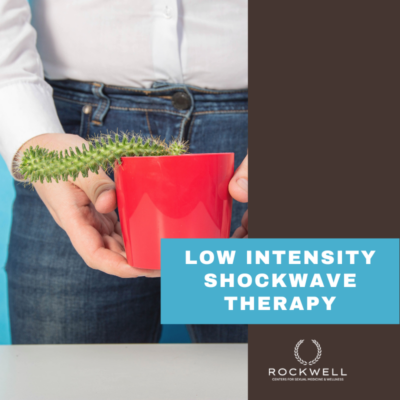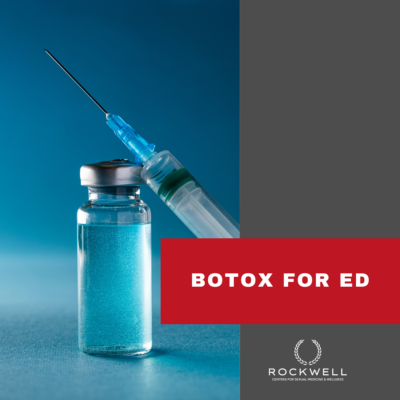Testosterone, often referred to as the “male hormone,” plays a crucial role in a man’s overall health, including sexual function. Understanding the relationship between testosterone and erectile dysfunction (ED) is vital for anyone experiencing symptoms of ED or looking to maintain their sexual well-being. In this blog post, we’ll explore the role of testosterone in sexual health and its relevance to ED.
Testosterone: The Key Hormone for Men’s Health
Testosterone is a hormone produced primarily in the testicles, though the adrenal glands also release small amounts. It serves a multitude of functions, from influencing sexual development and maintaining muscle mass to regulating mood and energy levels. In the context of sexual health, testosterone plays a pivotal role in the following aspects:
- Libido (Sex Drive): Testosterone significantly contributes to a man’s sex drive or libido. A healthy level of testosterone often corresponds to a strong interest in sexual activity.
- Erection Quality: Testosterone influences the ability to achieve and maintain an erection. It contributes to the mechanisms that allow blood to flow into the penis, creating the stiffness necessary for intercourse.
- Sperm Production: Adequate testosterone levels are crucial for sperm production and fertility. Low testosterone may result in reduced sperm count.
- Mood and Confidence: Testosterone can impact mood, self-confidence, and overall well-being. Low levels of testosterone may lead to feelings of fatigue, depression, and irritability.
The Link Between Testosterone and ED
ED occurs when a man struggles to achieve or sustain an erection sufficient for sexual intercourse. While ED can result from various factors, testosterone plays a significant role. When testosterone levels drop below the optimal range, it can lead to:
- Reduced Libido: Lower testosterone levels often result in a diminished sex drive, making it challenging to become sexually aroused.
- Erection Difficulties: Testosterone contributes to the process of achieving and maintaining an erection. Low testosterone levels may lead to weaker, less sustainable erections.
- Emotional Impact: Low testosterone can cause mood swings, irritability, and a decline in overall well-being, which can further affect sexual performance.
- Muscle Mass and Fat Distribution: Changes in body composition due to low testosterone may influence a man’s confidence and self-image.
- Cardiovascular Health: ED often shares risk factors with cardiovascular disease, and low testosterone can contribute to both conditions.
Identifying Testosterone Deficiency
If you suspect that low testosterone is contributing to your ED or other health concerns, it’s essential to consult with a healthcare professional. Diagnosing testosterone deficiency typically involves a blood test to measure testosterone levels.
Don’t hesitate to seek professional guidance if you suspect low testosterone levels. Effective treatment options are available.
Treatment Options for Low Testosterone and ED
Addressing low testosterone is a critical step in improving erectile function and overall sexual health. Depending on the specific circumstances and causes of low testosterone, various treatment options are available. Here are some common approaches:
- Testosterone Replacement Therapy (TRT): TRT is a well-established and effective treatment for men with documented testosterone deficiency. It involves supplementing the body with testosterone through methods such as injections, gels, patches, or implantable pellets. The goal is to restore testosterone levels to the normal range.
- Lifestyle Modifications: Sometimes, lifestyle factors contribute to low testosterone levels. Engaging in regular physical activity, maintaining a healthy diet, managing stress, and getting adequate sleep can help support healthy testosterone production. Even if you opt for TRT or other medical interventions, adopting a healthy lifestyle can complement your treatment and contribute to better overall health.
- Treating Underlying Conditions: In some cases, medical conditions or medications may be the root cause of low testosterone. Addressing these underlying issues, such as managing obesity, controlling diabetes, or adjusting medications, can lead to improvements in testosterone levels. Identifying and treating underlying causes is crucial for long-term success in managing low testosterone and ED.
- Psychological Counseling: Emotional factors can sometimes contribute to ED. Stress, anxiety, and depression can interfere with sexual function. In such cases, therapy or counseling may be recommended to address these psychological concerns. Don’t underestimate the impact of emotional well-being on sexual health. Open and honest communication with a healthcare provider can help determine if psychological factors play a role in your condition.
- Medications for ED: While primarily targeting ED symptoms, medications like Viagra (sildenafil), Cialis (tadalafil), and Levitra (vardenafil) can temporarily improve erectile function. They do not directly affect testosterone levels but can help men achieve and maintain erections. Medications for ED can be an effective short-term solution. However, they do not address the underlying cause of low testosterone and ED and may not be suitable for all men.
- Nutritional Supplements: Some men explore natural supplements and herbs to support testosterone levels. Supplements like DHEA, fenugreek, and ashwagandha are believed to have potential benefits, but their efficacy and safety can vary. If you’re considering nutritional supplements, it’s crucial to consult with a healthcare provider to ensure they are safe and appropriate for your specific situation.
It’s important to emphasize that treatment plans for low testosterone and ED should be individualized. What works best for one person may not be the optimal solution for another. A thorough evaluation by a leading ED specialist is essential to determine the most suitable treatment approach. Your doctor will consider factors such as the underlying causes of low testosterone, your overall health, and your treatment goals when developing a personalized plan.
Testosterone & ED Treatment in Philadelphia, New York and Allentown
Understanding the role of testosterone in sexual health and its connection to ED is the first step in addressing these concerns. While low testosterone is a common factor in ED, it’s important to note that ED can have various causes, and a comprehensive evaluation by a healthcare provider is essential.
If you’re experiencing symptoms of ED or suspect testosterone deficiency, consider scheduling a consultation with me. My team and I can provide a thorough evaluation and personalized recommendations to help you regain your sexual health. Our centers are conveniently located in Bala Cynwyd (Philadelphia), PA, Manhattan, NY, and Lehigh Valley (Allentown), PA. We’re here to provide comprehensive and discreet care to support your sexual health and wellness.
Warm regards,
Dr. Paul Gittens, MD, FACS
Rockwell Centers for Sexual Medicine and Wellness












